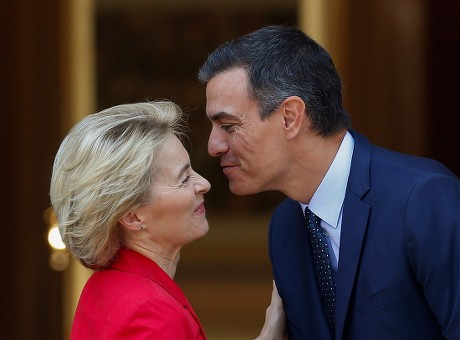
Pedro Sanchez and his Socialist Party, in coalition with Spanish communists, got to power in June 2018 following a motion of parliamentary confidence; less than one year after, he called for elections. Before the vote, he publicly promised that he would modify Spain’s Criminal Code to explicitly establish the organisation of an illegal referendum as a crime. He also assured voters that he would bring Catalan separatist Carles Puigdemont back to Spain to stand trial. Mr. Puigdemont had fled to Belgium to avoid conviction.
During the Covid crisis in 2020, Mr. Sanchez declared the state of alarm in Spain in mid-March and kept the population seized at home for more than two months, governing by decree with minimal check on behalf of Parliament. This way of acting would be later declared abusive by the Constitutional Court up to six times.
Instead of standing by his pre-electoral promises, Mr. Sanchez went on a strategy of partnering with Catalan independentist parties to stay in power, because of possessing only an insufficient number of votes. On 21 July 2021, he pardoned nine such independentist politicians, who had been convicted of the crime of sedition after organising the illegal referendum of 2017 with taxpayers’ money.
On 6 September 2022, the Socialist-Communist coalition passed the Law of Integral Guarantee of Sexual Freedom, reducing penalties in favour of hundreds of rapists and paedophiles, and even freeing of dozens of them. In order to implement this highly ideological catastrophe, the Government had previously concealed negative reports on the law from MPs opposing Mr. Sanchez.
On 22 December 2022, the Spanish socialists did exactly the contrary of what Mr. Sanchez had promised. Indeed they reformed the Criminal Code, but only to repeal the crime of sedition and to reduce penalties for the crime of public funds embezzlement. This measure benefitted dozens of politicians that were being investigated, both separatists as well as socialists.
In May 2023, Sanchez decided to call for new elections. Only days before, his Minister of Home Affairs had categorically stated, with regards to the Catalan issue, that an “amnesty is not recognised in our legal system”. This view had been anticipated by Sanchez himself twice, quite recently in an interview of November 2022, but also during a press conference back in September 2021, where he had assured everyone that “neither a referendum on the independence of Catalonia nor an amnesty are possible”.
In January 2023, Sanchez placed at the top of the Constitutional Court a well-known socialist. Though this was done in agreement with the Spanish Popular Party, the appointment would assure the Prime Minister a majority in favour of his left-wing Government, in order to avoid potential future decisions as those issued during the Covid crisis.
On 9 November 2023, Sanchez announced his will to implement a law of amnesty in favour of Catalan independentists, with whom he had reached a political agreement. The agreement also included the creation of parliamentary committees to monitor decisions on behalf of the Judiciary.
On the same date, the General Council of the Judicial Power warned that Sanchez’s actions were jeopardizing “the rights and freedoms of Spanish citizens”, while all Spanish judiciary associations stated that the Socialists’ initiative would “in practice entail submitting judicial procedures and decisions to parliamentary review, which would in turn lead to an evident interference in judicial independence and a breach of the separation of powers”. Similarly, the professional association of Inspectors of the State Tax Administration issued a declaration with a “full and absolute rejection of the agreements resulting from the negotiation for the investiture of the current Prime Minister of Spain”.
Against this sombre background, it seems rather awkward that the European Commission would not move a finger to analyse the respect for the rule of Law in Spain, particularly if one compares such total lack of reaction with the continuous bullying on Poland and Hungary’s conservative governments during the current term. Who could recognise in such behaviour the respect for the EU principle of equality and non-discrimination?
Source of image: Shutterstock



 Subscribe
Subscribe